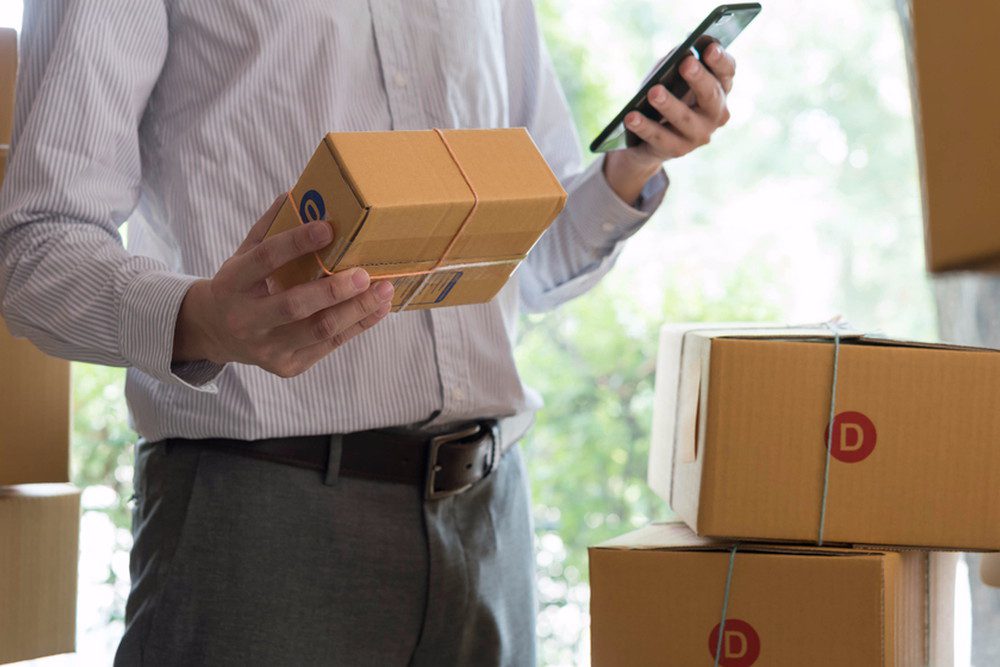eCommerce: How to Ship Products with Ultimate Shipping Software
Table of Contents
Ecommerce
eCommerce is a thriving business segment in the present times. With the technology boom and increase in digitization, people have been lured towards the idea of shopping in the comfort of their homes. With this pervasive ideology in fair play, various small eCommerce businesses are picking up the pace from their homes which are their makeshift offices. An essential and urgent process that completes the operations of any eCommerce business is shipping.

How To Ship Products?
Before you even start an eCommerce business, it is essential that you chalk out the shipping and fulfillment process for your products. Depending on the cost and weight of your products, you will have to decide one of the many options available to make your goods available to the customer.
In India, many logistics firms provide shipping services for online businesses all over the country at varying rates and charges. While you can choose one of these options anytime, you can also explore opportunities for contract shipping and bulk shipping or ship using shipping software. While the process will remain the same in either case, you might get the benefit of reduced charges and rates with one or the other option.

eCommerce Shipping Options
Online fulfillment takes the organization of all the people, processes, and technology needed to deliver an order to a customer. This includes everything from your online checkout processes, payment provider, and order management system to how you pick, pack, and ship items. A lot can go wrong from the time an order is placed then shipped. These are the options to ship products:
1. Shipping Software
Shipping software helps retailers import, organize, and process all their online orders for fast and reliable shipping. They help you create and print shipping labels and compare carrier rates. Shipping software is an affordable way to take care of the tedious part of domestic shipping, while ensuring you’re using the most cost-effective carriers.
If you’re a small business, shipping software might be all you need. If you’re a high-volume seller, you’ll most likely use shipping software alongside your ERP or other technology used to pick, pack, and ship products.
2. Integrating your ERP
If you have an ERP, consider system integration software to connect it to your eCommerce platform, 3PL provider, or shipping software. System integration platforms enable merchants to sync data and automate processes between their systems like online order processing, inventory synchronization, and financial reporting. System integration keeps your data accurate and accelerates daily processes like order fulfillment.
For example, without integration, merchants often hand-key an online order from their eCommerce platform into an ERP for processing and then hand-key shipping/tracking data back to the eCommerce platform to complete the process. This can be slow and prone to errors like mistyping a SKU number or shipping address.
If you’re experiencing an influx of orders and slow fulfillment processes, integration could be the best solution for now to ship products timely and accurate deliveries.
3. Outsourcing to a Third-party Logistics (3PL) Provider
Realizing that most retailers aren’t going to specialize in logistics, 3PLs, or third-party logistic providers, offer a way to outsource either part or all your fulfillment process such as warehouse management, transportation of goods, reporting and inventory forecasting, etc. There are many different types of 3PLs that serve different needs. Some 3PLs will specialize by industry or area of logistics.
Merchants use 3PLs because you don’t need to incur the cost to specialize in logistics. Instead, you can benefit from a 3PL who can leverage relationships and volume discounts that you as a merchant couldn’t otherwise achieve. Along those lines, 3PLs also save retailers from investment in warehouses, staff, technology, and transportation. Retailers can opt out of this responsibility and instead focus on core operations and customer experience.
4. Ship-From-Store
For online retailers with a physical brick-and-mortar presence, ship-from-store is a great option. It is a growing trend among retailers to use their stores as fulfillment centers.
Undoubtedly, it makes sense. This type of strategy leverage the retailer’s physical assets to fulfill online shopping orders. Since physical stores are closer to customers than the typical DC, it also reduces shipping costs. This is specifically true when an OMS optimizes the location from which to ship the goods.
Why Ship youre Stores – From Physical Stores? Ship-from-store (physical) is a popular method to ship products for online stores because it uses a retailer’s existing assets. It engages the entire organization. This means a store’s inventory is used to fulfill online business sales. In this sense, store inventory turnover is higher.
Consequently, the retailer’s store inventory is kept fresh. We also see a reduction in the pressure to markdown inventory. After all, if inventory turnover is higher, the store can simply NOT refresh on end-of-season merchandise. That means there will be fewer end-of-season goods that need ‘on-sale’ discounts. To make the story sweeter, provide commission for stores on online shopping orders for each region.
If in-store sales people have an incentive to sell online goods, they will. So, when a customer is in the store and finds an item out of stock (OOS), they may bring it up with an associate. When they do, the salesperson will help the shopper enter the order for later home delivery or pickup. But, they will only do this if they will get their commission for doing so.
If stores get credit for shipping from their in-store inventory, then they will want to do it more often. That means the floor associates will promote your omnichannel services.
Definitely, that’s good for the business and brand. This also means store managers will be pleased to have some of their staff fulfill online orders.
5. In-Store Pickup (Click & Collect)
A great option to ship products for online stores doesn’t include shipping at all! Instead, think in-store pickup. This is also commonly called click and collect, or BOPIS (buy-online-pickup-in-store). Like the ship-from-store model, in-store pickup is a core part of omnichannel retailing. Best of all, it is a huge boon for retailers.
The Click & Collect SuperConsumer research shows us that top shoppers want the in-store pickup option. In fact, 69.0% of Superconsumers expect in-store pickup where they get orders within 24 hours. Other research has shown an 25% increase of consumers planning to use BOPIS over this next year. Your best customers want BOPIS, so offer it!
For the Retailer… Do you want to ship products for online stores – using physical stores as pickup points?
Resoundingly, the answer is YES! And, there are three main reasons for it. First, as expressed above, your best customers want it. Even those that shop online want to use in-store pickup for their online purchases. Instant gratification is one reason. Shoppers are impatient. They want to get their products now. Or maybe they want to try it on, to make sure it fits and feels right.
Second, it saves merchants the cost of shipping. If for no other reason, it means you don’t have to absorb the cost of shipping items to your customers.
Third, when the online shopper comes into the store for the pickup, 40% – 58% will buy more goods!
The Click & Collect Superconsumer research shows that 41.0% of Superconsumer shoppers purchased more goods. They typically bought an additional $40 worth of merchandise. Against an AOV of $100 – $120, that’s an increase of 33% – 40% of the order value! Whenever possible, get your online shopper to come into your stores to pick up their order. It is definitely good for business!
Blog-58: ECommerce: How to Ship Products with Ultimate Shipping Software
Powered By 360Presence
Leave a Replay
Ship Products? Ecommerce shipping software store pickup Ship Products? Ecommerce shipping software store pickup Ship Products? Ecommerce shipping software store pickup Ship Products? Ecommerce shipping software store pickup




